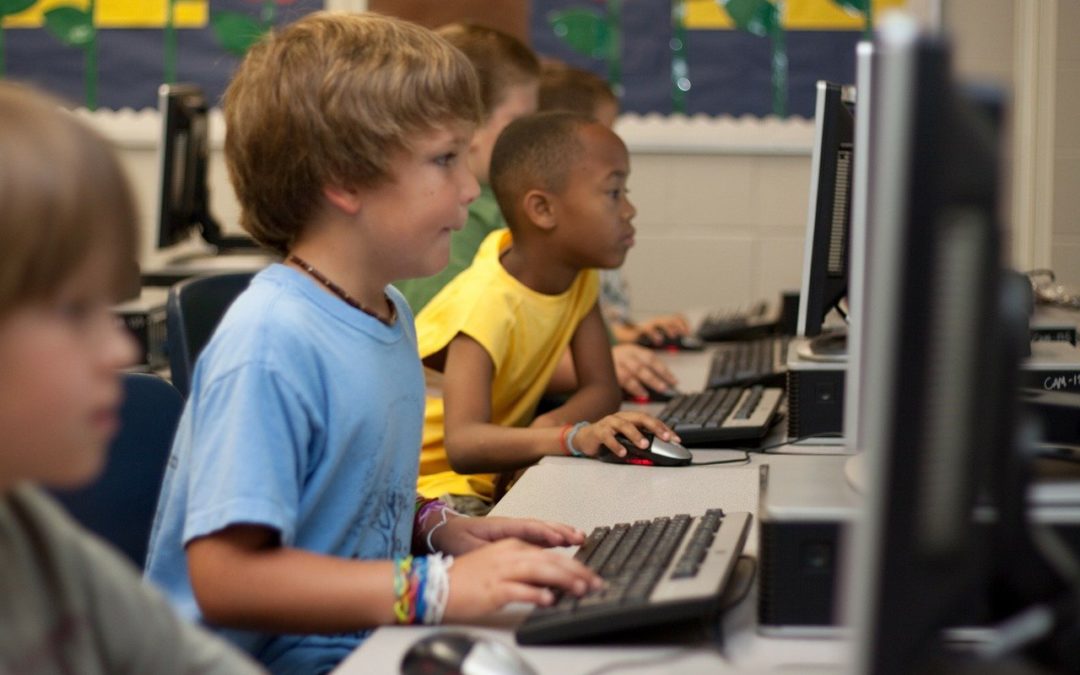
How do under-resourced schools minimize the gap between themselves and their global peers?
The question uppermost in the minds of School Administrators, Principals, CSR Leaders, ESG Decision-makers, and Policymakers seems to be common globally.
How do schools that are disadvantaged due to a variety of factors, ranging from Infrastructure to Conflicts, keep pace with other schools in the Digital era? How do they enjoy the fruits of the Digital Transformation initiatives sweeping worldwide?
Else this is leading to a growing Digital Divide increasing the gaps in society from financial to economical status to healthcare impact. Not to forget the impact on a country’s economy due to lack of talent unable to fill in the high demand for Digital Skills.
Top of the wishlist comes the topic of Artificial Intelligence Education for K-12 Schools. Why? because it’s important to start early for technology Skills and it’s proven to pull out a family from the Poverty Cycle in one generation ( as opposed to 6 generations via traditional interventions). Start late and you find most students have dropped out or are unable to cope with the demands of studying technology especially Artificial Intelligence.
Here are action items to follow:
- Invest in Skill Development Programs for Teachers and Administrators
- Spend on age-appropriate AI Education Programs for Students at all age-groups
- Expand your Digital Infrastructure as Focus area
- Implement multi-lingual AI Programs which benefits non-English Students
- Adopt 360 degree programs which include discussions on AI Ethics, Bias, Data Security
Examples of National Programs: ( Courtesy of PAN Topic Guide by the Policy Action Network https://lnkd.in/eE7dHNRV )
In India, a national strategy on AI by NITI Aayog28, a governmental think tank, considers the role of data-driven technologies in education. The strategy reviews challenges faced by the education sector, many of which are similar to South Africa, and suggests ways in which AI may assist. For example, a key challenge is ‘imparting quality education to India’s linguistically diverse population’, for which India anticipates exporting AI-based solutions to other developing countries. Other opportunities include personalized learning and automating administration. A collaboration between Microsoft and the state of Andhra Pradesh predicts school dropouts using ‘gender, socio-economic demographics, academic performance, school infrastructure, and teachers’ skills’. The strategy also suggests that implementing AI must be preceded by the digitization of curriculum and teacher and student performance, and highlights risks related to data security, potential bias in algorithms, and commercial use of personal data.
In 2017 the State Council of China published the Next Generation Artificial Intelligence Development Plan.29 This plan includes building and attracting high-end AI talent, as well as establishing AI-related courses at elementary and middle school levels. High schools now have an AI course added to their curriculum, and the revised IT curriculum focuses more on ‘data, algorithms, information systems, and the information society’ rather than computers and the Internet. On the higher education side, as of May 2018, China had established more than 30 AI colleges and is encouraging a multi-disciplinary approach to qualifications through compound majors involving, for example, AI and biology, psychology, law, and education.30 AI-enabled systems are also being used widely for the management of campus environments – to control access to facilities, track attendance at classes and stop ‘ghost writers’ sitting for exams – all of which raise concerns about the use of personal data and whether this level of monitoring is warranted.
In a report commissioned by the Australian National Department of Education, Skills and Employment (DESE)32, the authors suggest that AI could provide some benefits in the form of personalized learning, but notes that the technology is in the early stages of development and places a relatively strong emphasis on developing ethical and legal frameworks to prevent harm, non-discrimination and ensure accountability. More broadly, the DESE aims to strengthen STEM literacies through a number of initiatives, including an investment of AUD$1.5 Million into ‘the development of a range of curriculum resources to assist with the delivery of AI and emerging technologies content and the associated general capabilities in the Australian Curriculum.’ They have also set up an online resources hub, a teacher professional learning programme, and access to new technologies via the National Lending Library.
We have worked with leading Corporates, Schools, Foundations, and Government agencies in designing, developing, implementing AI Education Programs. You may wish to read more case studies here: https://wiselywise.com/case-studies/
The time to act is now !


Recent Comments